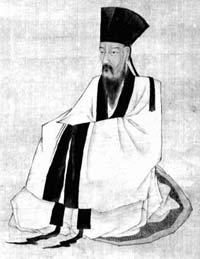Listening to Audible.com _Confucius, Lao Tzu, and Chinese Philosophy_. Very interested in Wang Yangming. He felt very strongly that action and knowledge are inseparable.
...[T]wo possibilities: first, that one can have knowledge without/prior to corresponding action; and second, that one can know what is the proper action, but still fail to act. Because of these two possibilities, the traditional position left open the possibility of separating knowledge and action, but called for the overcoming of this separation.
However, Wang denied both possibilities. These two denials constitute the essence of Wang’s theory of the unity of knowledge and action. First, according to Wang, it is only through simultaneous action that one can obtain knowledge: “If you want to know bitterness, you have to eat a bitter melon yourself.” Wang denied any other possible routes to obtain knowledge.
According to Wang, it is not possible for one to put something into practice after acquiring knowledge. This is because knowledge and action are unified already, from beginning to end. We cannot unify knowledge and action because they are already unified. Of course, Wang was aware of the claims that “there are people who know that parents should be served with filial piety and elder brothers with respect but cannot put these things into practice. This shows that knowledge and action are clearly two different things.” Wang’s answer was: “The knowledge and action you refer to are already separated by selfish desires and are no longer knowledge and action in their original state.” In other words, knowledge necessarily/automatically leads to action in its original state. We cannot have knowledge while preventing it from leading to action.
"
Wang believed that only through simultaneous action could one gain knowledge and denied all other ways of gaining it. To him, there was no way to use knowledge after gaining it because he believed that knowledge and action were unified as one. Any knowledge that had been gained then put into action was considered delusion or false.
This is an important one for me, because my days are filled with knowledge acquired and never put into action. What a change if I never let it outside of the focus of my mind: turn knowledge into action, NOW, because otherwise that knowledge was false, it was simply delusion that lulled me into indulgent contemplation.


![Reblog this post [with Zemanta]](http://img.zemanta.com/reblog_e.png?x-id=503de28f-ec50-4ed5-9e64-95bf264112f7)
No comments:
Post a Comment